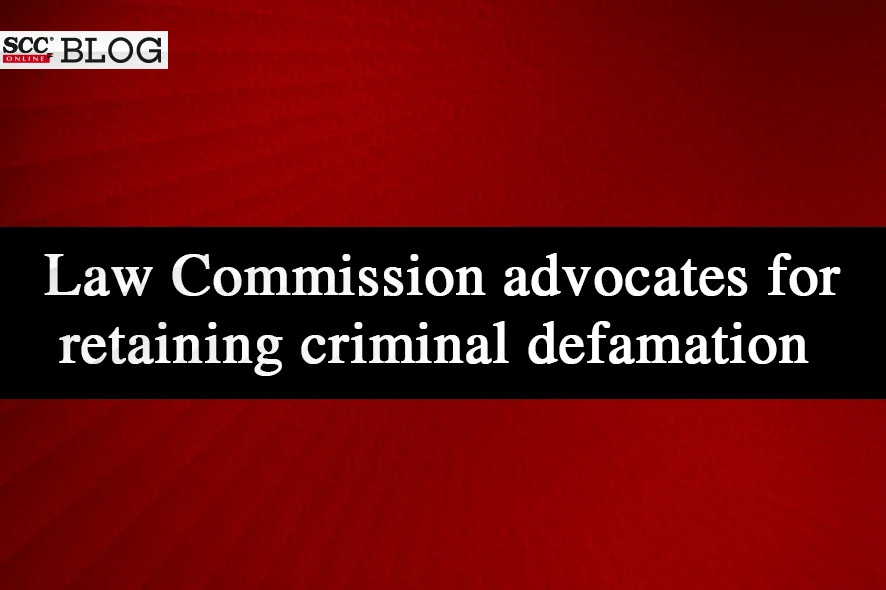The Law Commission’s 285th Report recommended the retention of criminal defamation as an offence within the scheme of criminal laws in the country.
The 22nd Law Commission took up the issue and review of the law relating to criminal defamation after a reference was received from the Ministry of Law & Justice in 2017 seeking to examine the subject of Defamation laws and related issues. The law of criminal defamation is enumerated in Sections 499, 500, 501 and 502 of the Penal Code, 1860 (‘IPC’).
The Law Commission Report on Defamation traces the history of law on defamation, Indian law. It compared the right to reputation as against the freedom of speech and expression and also tracked down the judicial precedents.
After a detailed comparative analysis of criminal defamation laws of Japan, China, Canada and European countries, as well as countries whereby the defamation has been criminalized, the Law Commission gave its concluding remarks. It stated that “Criminal defamation serves to protect reputation and dignity of individuals. Under Article 19(2) of the Constitution of India, reasonable restrictions can be imposed in relation to defamation for safeguarding the reputation of individuals. Criminal defamation acts as a deterrent against false and malicious statements, preventing damage to one’s reputation that civil remedies might not adequately address.”
While also considering the aspect of misuse of criminal defamation, but also discussed the necessity of criminal defamation to state that “One of the challenges in enforcing defamation laws is striking the right harmony among the two conflicting rights to free speech and an unharmed reputation.”
Pointers in favour of retaining criminal defamation:
-
Stronger Deterrent Effect
-
Public Interest in protecting Reputation
-
Protecting Vulnerable Groups
-
Inadequacy in Civil Defamation
The Law Commission Report concluded that “It may be argued that criminal prosecution for defamatory statements is opposed to the right of freedom of speech and expression. However, the protection of reputation is not the only impetus behind criminalizing defamation as avoiding public disturbances is an equally important motivation. Publications that harm a person’s reputation are an inherent part of the political process in a democracy, and stifling the same would be endangering the political process.”
It also pointed towards the inclusion of community service as an additional punishment under the Bharatiya Nyaya Sanhita, 2023, balancing the interest of victim and neutralizing the scope of misuse through an alternate punishment. It added that “The law acknowledges that harm to reputation is not only an attack on an individual, rather an imputation on the whole society, for which the perpetrator may be punished to serve the community as an act of remorse. Through introduction of this punishment, Indian law has shown the most balanced approach in protecting one’s reputation and speech too.”







